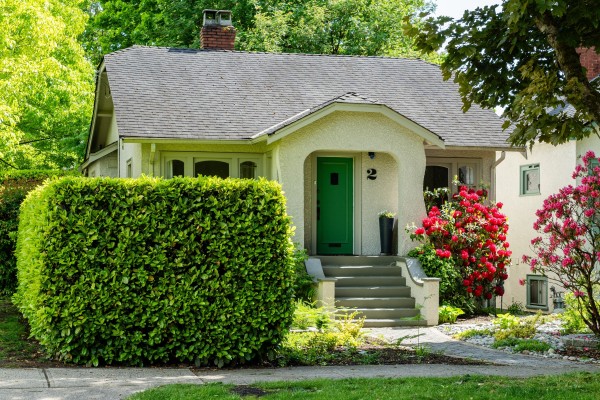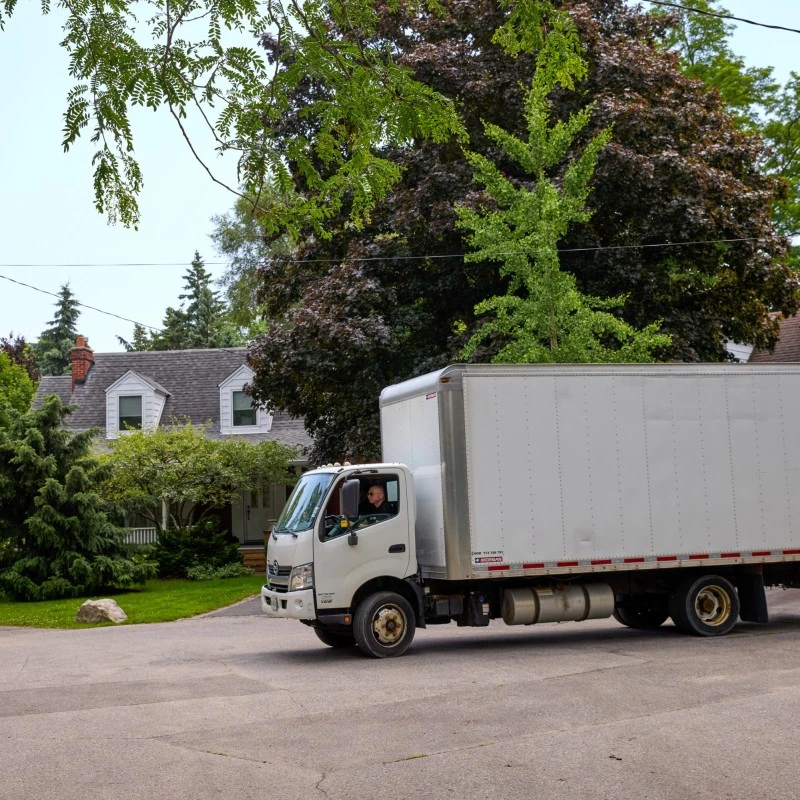The Cost of Living in Montreal [2025]

![The Cost of Living in Montreal [2025] The Cost of Living in Montreal [2025]](https://cdn.topmove.ca/image/blog/655fffd43b55ab509c8025455460e283.jpeg)
If you are looking for a city that offers a European vibe with modern North American amenities, then Montreal might be the city for you. Known for its historical relevance, abundance of festivals, and world-class cuisine, this bilingual city blends French and English influences, making it one of the most diverse cities in North America.
Montreal hosts growing industries in tech, the arts and entertainment, which attracts entrepreneurs and professionals from all over. Housing is affordable in comparison to other major Canadian cities, public transit is exceptional, and the streets are bike-friendly. These factors, along with lively neighbourhood communities all contribute to a high quality of life.
Let it also be known that Montreal’s winters are harsh, and if you don’t speak any French, finding work in certain professional spaces may be a challenge. That being said, many Montreal residents feel that the benefits of the city far outweigh the drawbacks.
Reasons to move to Montreal
Montreal offers career opportunities across a wide range of industries:
-
Finance - Montreal is a major centre for finance and home to the Montreal Exchange. Careers in banking, insurance and fintech are plentiful.
-
Tech - Montreal’s thriving tech scene has a focus on AI, video game development, and software engineering.
-
Arts, media and entertainment - Montreal is known for these industries, particularly in the areas of film, music and digital content production.
Additionally, healthcare, research, education, retail and hospitality are bustling industries in Montreal and provide thousands of jobs for residents.
Annual salaries in Montreal typically average around CA$60,000, with household incomes around CA$100,000, offering a more affordable cost of living compared to other major Canadian cities.
What's different about Montreal?
Montreal stands out from other cities due to its fusion of European aesthetics and North American vigour. The culture is unique as it’s bilingual and deeply rooted in its French heritage.
Montreal’s arts scene is famous and unmatched in Canada, and it's a hub for modern industries such as tech, gaming and AI. Unlike other major cities, Montreal is known for being affordable.
Cost of living in Montreal

Renting in Montreal
Montreal is much more affordable than Vancouver and Toronto, which makes it appealing for students, young professionals and newcomers to Canada.
You can find all types of housing, such as apartments in historic buildings to modern downtown condos. Just like everywhere else, rent prices vary depending on location and amenities, but overall, Montreal’s cost of living is relatively low for a big city.
Most leases in Montreal follow a yearly cycle, with many tenants moving on Quebec’s “Moving Day”, July 1st. We advise you not to move on July 1st if you can avoid it!
READ: What is Moving Day in Quebec?
Here is a list of some of the best neighbourhoods to rent in based on (relative) affordability, and access to public transit and amenities:
- Rosemont-La Petite-Patrie
- Hochelaga-Maisonneuve
- Villeray
- Verdun
- Saint-Henri
We recommend reading about each neighbourhood and looking at online community platforms to learn more about each area before you commit to a rental.
The average monthly rent for a 1-bedroom apartment in Montreal is CA$1,400. 2 bedrooms average at CA$1,800 and expect to pay CA$2,000 - CA$3,000 for anything with three bedrooms or over.
For a more affordable rental situation, you can choose to share a place with roommates. The best online platforms to find or advertise room rentals are:
-
Craigslist
-
Kijiji
-
Facebook Marketplace
-
Roomies.ca
-
Rentals.ca
-
Zillow
-
Roomster
-
Zumper
Buying a property in Montreal
The average house price in Montreal currently sits at CA$610,000. This is over CA$1m less than nearby Toronto’s average house price!
Of course, home prices vary by location and if you are seeking the most affordable options, check out these areas of Montreal:
-
Hochelaga-Maisonneuve
-
Montreal-Nord
-
Mercier-Est
-
Lachine
-
St. Leonard
Montreal’s Neighbourhoods of Interest

Montreal is Canada’s second-largest city and hosts 16 municipalities. Here are some of the most popular areas of the city:
Le Plateau-Mont-Royal
The Plateau is the heart of Montreal’s arts scene and its lovely row houses, murals and tree-lined streets add aesthetic. You can also find endless cafes, restaurants and boutiques. Mont-Royal Park is a big draw, and public transit is excellent.
The average rent for an apartment in the Plateau is CA$1810 and for an entire home it’s CA$2330.
Mile-End
Mile End is a sub-neighbourhood of the Plateau, and it's famous for its arts community, quirky shops and world-famous bagels. Creatives and tech professionals flock here, adding a hipster vibe to the area's old-world feeling. The neighbourhood is walkable and filled with cafes, galleries and boutiques.
The average rent for an apartment in Mile-End is CA$1800 and for an entire home it’s CA$2290.
Griffintown
Griffintown was an industrial area back in the day, and has been transformed into a popular urban district with modern condos, upscale restaurants, and all of the necessary amenities. It’s close to downtown, as well as the Lachine Canal for those who enjoy outdoor activities.
The average rent for an apartment in Griffintown is CA$1850 and for an entire house it’s CA$2320.
Old Montreal
Montreal’s historic centre is popular with both residents and tourists because of its cobblestone streets, gorgeous architecture and European feel. Most homes are luxury condos and lofts, the restaurants are high-end, and the area hosts cultural landmarks like the Notre-Dame Basilica.
The average rent for an apartment in Old Montreal is CA$1860 and for an entire house it’s CA$2250.
Downtown (Ville-Marie)
The most urban of neighbourhoods, downtown Montreal is always active, and is the city’s commercial core. It’s full of office towers, shopping centres, universities, and cultural institutions including the Montreal Museum of FIne Arts.
The average rent for an apartment in Ville-Marie is CA$1630 and for an entire home it’s CA$2330.
Little Burgundy
Just west of downtown is a trendy neighbourhood known for its jazz history. The restaurant scene is great, especially along Notre-Dame Street, and it's close to the Lachine Canal for outdoor recreation.
The average rent for an apartment in Little Burgundy is CA$1430 and for an entire house it’s CA$1810.
Things To Do in Montreal
From the arts to architecture to parks and beyond, the diversity of activities in Montreal is unmatched.
Explore Old Montreal (Vieux-Montréal)
Follow the area’s cobblestone streets lined with historic architecture to see sites such as Notre-Dame Basilica, Old Port, or Place Jacques-Cartier.
Mount Royal Park
Check out epic views from this famous mountain where you can hike, picnic or relax in the green spaces. In the winter it’s popular for skating, snowshoeing and sledding.
Montreal Museum of Fine Arts
One of Canada's most important museums, featuring a diverse collection from classical to contemporary art. Temporary exhibits often highlight international artists.
Admission for visitors aged 26 and over is CA$30, with a discounted rate of CA$15 available on Wednesday nights for those aged 26 and older. Visitors aged 25 and under, as well as members, can enter for free. Members of Indigenous communities also receive free entry.
Jean-Talon Market
This is one of the biggest public markets in all of North America. Food lovers can find local produce, cheese meats and tasty street food.
La Ronde
All ages of residents and visitors get excited about Montreal’s Six Flags amusement park, located on îl Sainte-Helene, to ride the rides and roller coasters.
Admission prices are CA$42 for a general admission day pass, depending on the season and promotions. If you're looking for a season pass or special event tickets, those prices can vary.
The Underground City (RESO)
The RESO is a network of tunnels and malls that connect buildings and metro stations. It’s a great place for shopping and exploring, especially in the winter.
Montreal Botanical Garden

This sprawling garden has themed sections including Chinese and Japanese gardens and an exotic plant greenhouse.
The Jardin Botanique is offering discounted rates while the greenhouses are closed. Regular admission for adults is CA$20.75, with a reduced rate of CA$15.75 for CMM residents. Seniors aged 65 and over can enter for CA$18.75, or CA$14.75 for residents. Students aged 18 and older with valid ID can enjoy admission for CA$15.25, or CA$12.25 for residents. For children aged 5 to 17, the cost is CA$10.75, or CA$7.75 for residents. Families can visit for CA$57.75, with a discounted rate of CA$44.50 for resident families.
Other notable things to check out are exploring Old Montreal, Saint Joseph’s Oratory, Plateau Mont-Royal and Mile End, The Museum of Contemporary Art, attending a show at Place des Arts, and taking a cruise on the St. Lawrence River.
READ: The Best Places to Buy Art in Montreal
Montreal Events
Montreal International Jazz Festival (Festival International de Jazz de Montréal)
From late June to early July you can attend the largest jazz festival in the world and see local and international artists perform inside and outside.
Tickets for the Montreal International Jazz Festival vary depending on the artist, venue, and type of event. The festival features a mix of free outdoor concerts and ticketed indoor performances.
For indoor performances, ticket prices typically range from CA$30 to CA$150 CAD or more, depending on the venue and the popularity of the artist.
Just for Laughs
In July, Montreal hosts the world’s biggest comedy festival where you can see standup, variety shows and other comedy events featuring comedians from all over the world.
All access passes for Just For Laughs range from CA$80 - CA$175.
Montréal en Lumière
Every February you can take part in a winter festival celebrating arts, gastronomy and outdoor activities, including a famous Nuit Blanche where the whole city stays awake all night and participants can enjoy free cultural events.
POP Montreal
POP Montreal is an independent music and arts festival that happens every September. It features a wide range of genres, along with film screenings, fashion shows, and art exhibits.
Ticket prices for POP Montreal vary depending on the event, artist, and venue. Many shows range from CA$10 to CA$40. Some events, such as art exhibits or workshops, are free or have a nominal fee. POP Montreal also offers festival passes that provide access to multiple shows, for CA$100 to CA$200, depending on the level of access and perks.
Other notable events include the Montreal World Film Festival, Montreal Pride, the International Fireworks Competition, a Mural Festival, and the Formula 1 Canadian Grand Prix.
The Cost of Food in Montreal
Montreal’s food and restaurant scene is influenced by its diversity, creativity, and deep cultural influences. French heritage meets global traditions, creating unique culinary options with a multitude of choices.
Grocery Costs
What you eat and where you shop will influence your monthly grocery costs. A single person typically spends between CA$200 and CA$350 per month on groceries, while a family of four can expect to spend around CA$850 to CA$1,200.
Cost of Dining Out
According to Google Maps data, Montreal is home to over 4,600 restaurants, with dining options for every occasion and budget. Expect casual meals to cost around CA$15 to CA$30, while fine dining can range from CA$60 to CA$150+ per person.
Cheap Eats CA$3 - CA$15
La Banquise - poutine
Pizza Chez Dany - pizza
Kazu - Japanese
Omnivore - Lebanese
Mid Range CA$15 - CA$40
Le Majestique - seafood
Impasto - Italian
Damas - Syrian
Elena - Italian, pizza
Fine Dining CA$40 - CA$250
La Chronique - French
Les 400 Coups - Modern French
Toqué! - Modern French
Getting Around in Montreal

Just like other major cities, traffic congestion is common in Montreal. Public transit, run by the Société de transport de Montréal (STM), is efficient and affordable.
The Montreal Metro features four main lines: Green, Orange, Yellow, and Blue, which cover the city and extend into surrounding suburbs.
A single ride costs CA$3.75, and monthly passes are priced at CA$93.00. The city's bus network complements the Metro, offering additional routes across Montreal.
The AMT (Agence métropolitaine de transport) operates regional train services connecting Montreal with neighbouring areas, including the Greater Montreal Area and beyond. Fares vary based on distance, starting at CA$4.50 for shorter trips.
The OPUS Card system simplifies fare payments for Montreal transit services. You can load funds onto your OPUS Card at various locations, including STM stations and participating retailers, or online. Schedules and route information can be accessed on the STM website or through transit apps. A single Metro or bus ride costs CA$3.75, and the OPUS Card itself costs CA$15.00, which is refundable when you return the card.
Parking in Montreal
Parking costs in Montreal can vary widely depending on location, type of parking, and duration. On-street parking downtown costs between CA$3 and CA$4 per hour, with rates being higher in busy areas and during peak times. In residential areas, on-street parking rates range from CA$1 to CA$2 per hour, though restrictions may apply depending on the neighbourhood.
For parking lots and garages, rates in the downtown area range from CA$15 to CA$30. per day, with prices varying based on proximity to major attractions and the duration of parking. In less central suburban areas, daily parking rates can be lower, around CA$10 to CA$20.
Monthly parking permits in downtown Montreal typically cost between CA$150 and CA$300, depending on location and facility. Outside the city centre, monthly parking permits tend to be less expensive, ranging from CA$100 to CA$200.
What do our customers say?


![How much do you need to earn to live comfortably in Montreal? [2025] How much do you need to earn to live comfortably in Montreal? [2025]](https://cdn.topmove.ca/image/blog/80e0ee82a5a92d9451b96ff875513ee4.jpeg)
![How much do you need to earn to live comfortably in Montreal? [2025] How much do you need to earn to live comfortably in Montreal? [2025]](https://cdn.topmove.ca/image/blog/a10926204bd3cc9dc104fe922d7632f7.jpeg)


![The Cost of Living in Canada [2025] The Cost of Living in Canada [2025]](https://cdn.topmove.ca/image/blog/fd5e6f8de7a01a874376620f785ffdba.jpeg)
![The Cost of Living in Toronto [2025] The Cost of Living in Toronto [2025]](https://cdn.topmove.ca/image/blog/ded0549bf885e2463f6b3516d9f8f021.jpeg)
![The cost of living in Ottawa [2025] The cost of living in Ottawa [2025]](https://cdn.topmove.ca/image/blog/05c56698337852b128efa8b1144e6466.jpeg)
![The Cost of Living in Winnipeg [2025] The Cost of Living in Winnipeg [2025]](https://cdn.topmove.ca/image/blog/8874f5688baa4a1291d7eae6c507f8aa.jpeg)
![The Cost of Living in Edmonton [2025] The Cost of Living in Edmonton [2025]](https://cdn.topmove.ca/image/blog/85d8f0085c5276a3f3add5828109b82a.jpeg)
![The Cost of Living in Victoria [2025] The Cost of Living in Victoria [2025]](https://cdn.topmove.ca/image/blog/012c60baf3a9dd52b2112857fe508e4c.jpeg)
![The Cost of Living in Calgary [2025] The Cost of Living in Calgary [2025]](https://cdn.topmove.ca/image/blog/44a5bcb6ebf6c658f5c5fe30ab7077c9.jpeg)




![How much do you need to earn to live comfortably in Vancouver? [2025] How much do you need to earn to live comfortably in Vancouver? [2025]](https://cdn.topmove.ca/image/blog/7036030cc91de9cff4153dc88aa88f85.jpeg)
![How much do you need to earn to live comfortably in Victoria? [2025] How much do you need to earn to live comfortably in Victoria? [2025]](https://cdn.topmove.ca/image/blog/f0bdeb7f43a3340afba84793c4fddbac.jpeg)
![How much do you need to earn to live comfortably in Toronto? [2025] How much do you need to earn to live comfortably in Toronto? [2025]](https://cdn.topmove.ca/image/blog/de7b110360e9510bfcb89724b7ef9af4.jpeg)
![How much do you need to earn to live comfortably in Calgary? [2025] How much do you need to earn to live comfortably in Calgary? [2025]](https://cdn.topmove.ca/image/blog/46fef724030602a02f51110ffb3ac569.jpeg)
![How much do you need to earn to live comfortably in Winnipeg? [2025] How much do you need to earn to live comfortably in Winnipeg? [2025]](https://cdn.topmove.ca/image/blog/d52ddc1f425f60fd553dcc00f7eb0fb5.jpeg)





